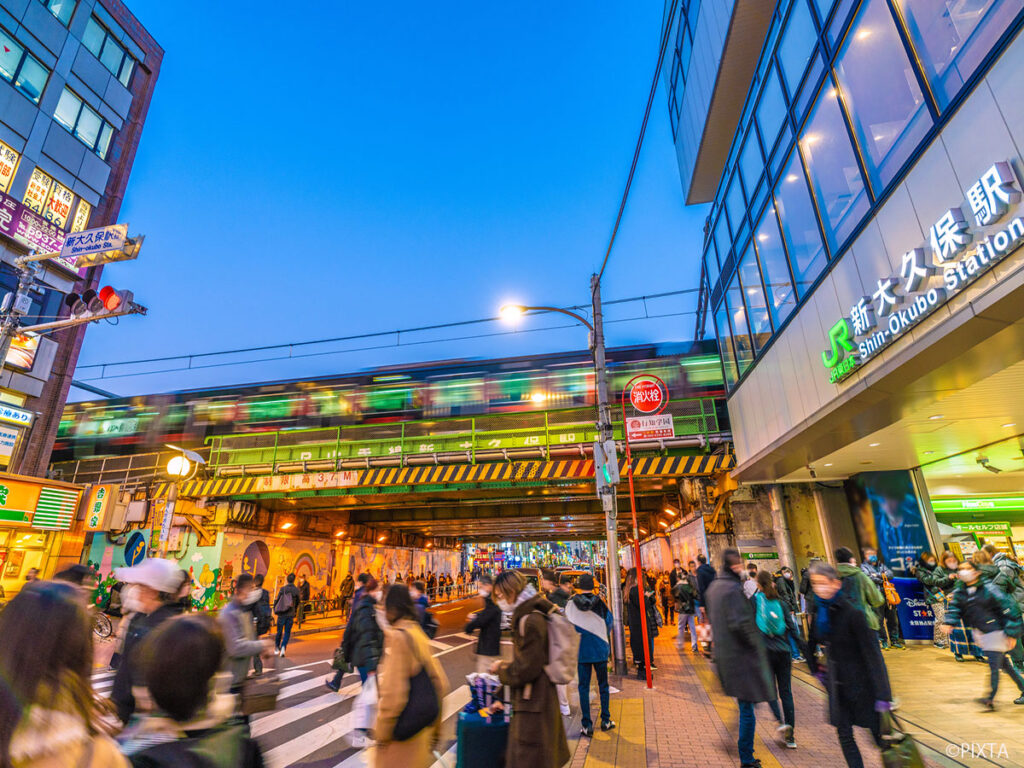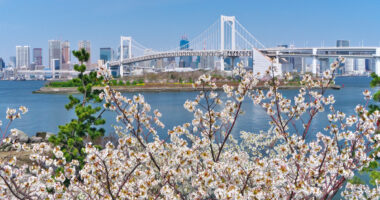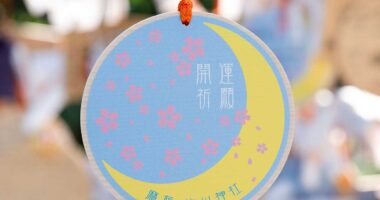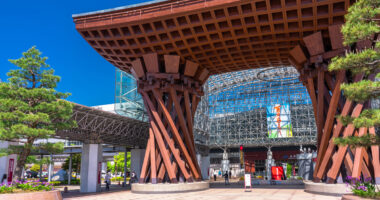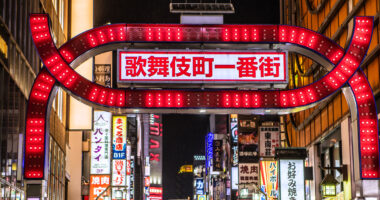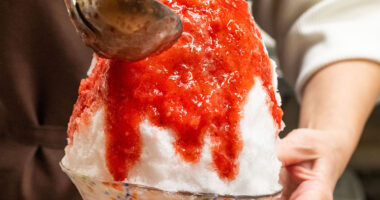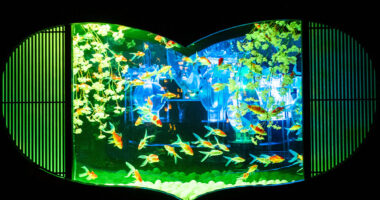Found within the bustling district of Shinjuku, the smaller neighborhood of 新大久保 Shin-Ōkubo may not be at the top of lists found in Tokyo guidebooks, but it’s quickly rising the ranks. Known as Tokyo’s “Korea Town,” Shin-Ōkubo is a vibrant area thriving with cuisine and entertainment that attracts both fans of K-Pop and those just looking to taste some authentic Korean eats at the area’s many street food stalls, karaoke parlors, markets, restaurants and bars.
The area also caters to a local community of residents from Southeast Asia and the Middle East, with marketplaces and restaurants offering imported goods and Halal dining. The international atmosphere of Shin-Ōkubo provides an exciting twist on any trip to Tokyo, and its parade of delicious restaurants makes it a must-visit for those planning to make gourmet the main goal of their visit.
Access
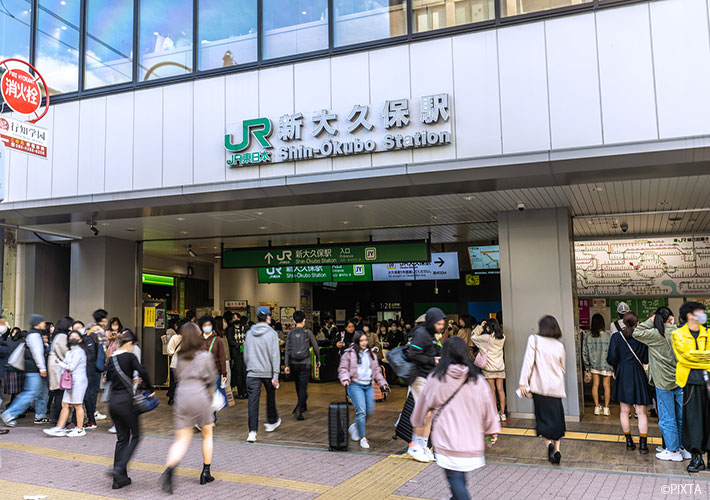
Shin-Ōkubo can be conveniently accessed via the major JR Yamanote Line.
Many of Shin-Ōkubo’s main attractions, particularly the Korea Town, are almost immediately accessible a short walk from Shin-Ōkubo Station (JY16), which is found on the JR Yamanote Line. Those using the Chūō-Sōbu Line can also get off at Ōkubo Station (JB09), and reach Shin-Ōkubo in about 3 minutes on foot.
Food And Drink
With a thriving Korean community that has help give the neighborhood Tokyo’s biggest Korea Town, the star of Shin-Ōkubo’s culinary scene is undoubtedly Korean food. Whether you’re looking for a quick snack from a street vendor or a full-on dining experience, the area has an abundance of tasty Korean food options to satisfy your appetite.
Korean fried chicken: Food fans around the world have come to sing the praises of Korean fried chicken, and for good reason. Super crispy and packed with tons of flavor, these tasty cuts of fried chicken are usually available in large quantity for an affordable price, making them perfect to share with friends and pair with drinks on a night out. While Korean fried chicken is available in a variety of sauces and seasonings, ヤンニョムチキン yangnyeom chicken is one of the most popular types served. Glazed in a sweet and spicy gochujang (fermented chili paste) sauce, yangnyeom chicken is a must for fans of spice.
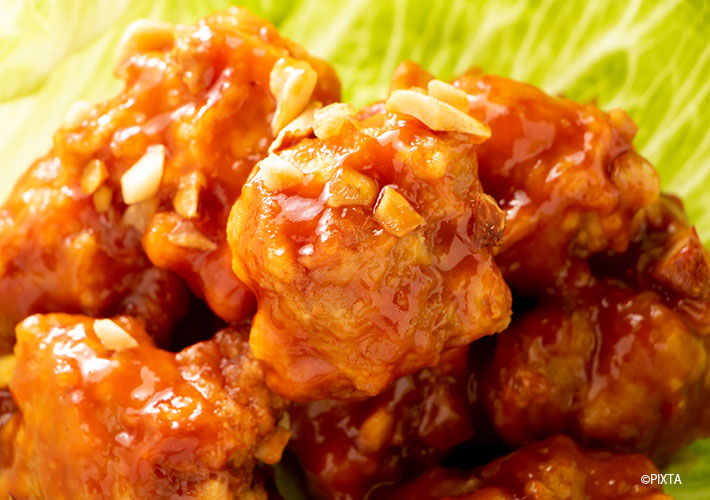
Shin-Ōkubo is the place to be for Korean fried chicken in Japan. [Photo for illustrative purposes only]
With other flavors like soy garlic, honey mustard, and cheese, fried chicken fans will be sure to find a type they like at one of Shin-Ōkubo’s many bustling chicken joints.
Korean BBQ: While Japanese food lovers may be familiar with yakiniku (Japanese-style barbecue/grilled meat cuisine), it’s popular Korean equivalent has developed quite the following in Japan, with Shin-Ōkubo as a stronghold for delicious meat and vegetables grilled right at your table. Enjoy flavorful side dishes such as kimchi, then cut strips of beef, pork, and chicken to grill up and eat, either on their own or packed in lettuce wraps with other sauces and fillings.
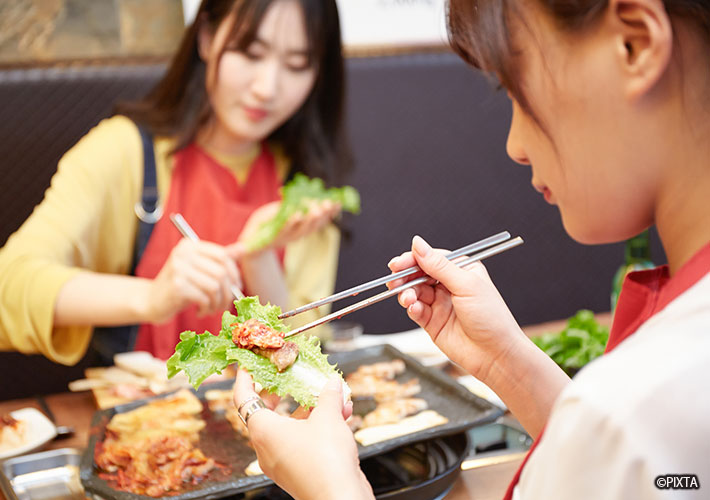
The area has plenty of delicious Korean BBQ options. [Photo for illustrative purposes only]
タッカルビ Dak-galbi: Dak-galbi is a popular Korean dish that has become quite a trendy food to eat in groups in Japan, and Shin-Ōkubo offers plenty of places to try it. The dish consists of a stir-fry of chicken marinated in a gochuujang-based sauce, along with vegetables such as cabbage, sweet potatoes, onions, carrots, and rice cakes on a flat grill perfect for party dining. Cheese dak-galbi is a particularly popular type which, as its name implies, adds a yummy bed of melted cheese to the dish.
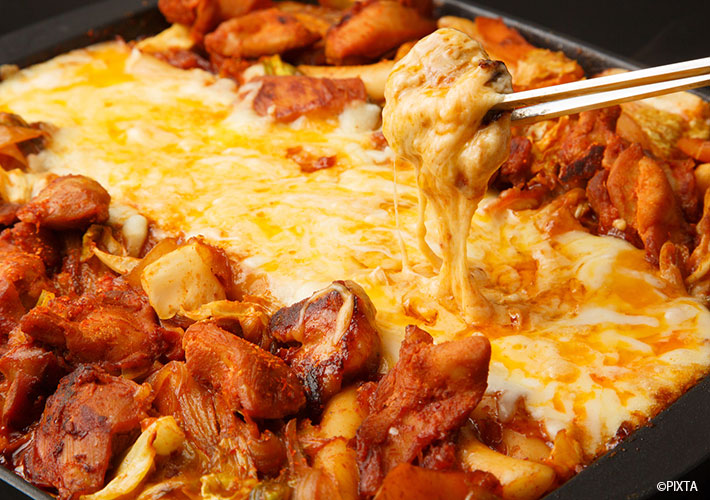
Cheese dak-galbi is a cheesy chicken delight. [Photo for illustrative purposes only]
Korean street hot dogs: Sometimes known as Korean corn dogs, this popular street food is often called ハットグ hattogu in Japan (even though this means ‘hot dog’ in Korean). They differ from American corn dogs in that the batter used to coat the hot dog or cheese-filled sausage in the middle is made with wheat flour and rice flour, providing a particularly crispy texture and unique appearance after frying. They come slathered in a variety of sauces and fillings, which has made them a popular trendy treat lining the street stalls of Shin-Ōkubo.
In addition to Korean cuisine, Shin-Ōkubo is also known for a number of Muslim-friendly restaurants along a street called イスラム横丁, or Islam Yokochō. This is a great place to seek out different types of cuisine such as Indonesian, Malaysian, Turkish, Pakistani, and more. Many restaurants in the area offer Halal-compliant menus as well.
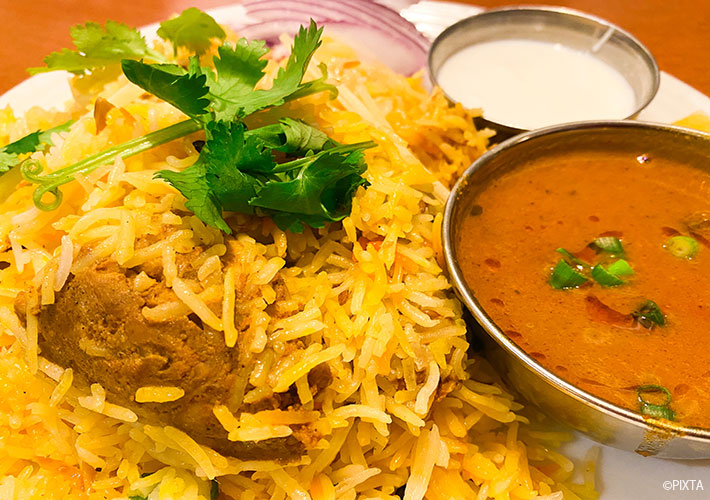
Enjoy dishes such as biryani and curry at Islam Yokochō. [Photo for illustrative purposes only]
Shopping
Korean goods: The shopping scene in Shin-Ōkubo very much mirrors its culinary offerings, with numerous shops and boutiques filled with Korean products. The neighborhood is a hot spot for fans in search of K-Pop merchandise, albums, and posters. Shin-Ōkubo is also known for a number of beauty and cosmetic shops, selling popular Korean skincare items, makeup, and beauty accessories.

Korean beauty goods are a hot commodity in Shin-Ōkubo. [Photo for illustrative purposes only]
Sightseeing And Activities
When it comes to sightseeing, Shin-Ōkubo isn’t tied to any particular tourist spots or attractions, but is known rather for its abundance of dining and shopping options as Tokyo’s Korea Town. Take a chance during your visit to explore the area thoroughly, getting a feel for the lively atmosphere of a Korean neighborhood in Tokyo. Occasionally, the area is host to cultural events and festivals that bring out more food vendors and performers, so be sure to see if any are happening during your stay.
Overall, Shin-Ōkubo is a fun and fascinating departure from many of the other sights and sounds found in Tokyo. The lively and engaging Korea Town area is a must-visit for fans of Korean food and entertainment. The marketplaces and restaurants of Islam Yokochō offer a wide range of food and goods not always easy to come by in Japan, as well as a haven for those in search of Halal-friendly food. Travelers looking to see another side of Tokyo will definitely want to take time out of their trip to check out Shin-Ōkubo.
